Tension across the Taiwan Strait has increased since Taiwan's pro-independence Democratic Progressive Party (DPP) won the Presidential elections for the third consecutive time in January 2024. The victory of the DPP's Lai Ching-te clearly signalled that the people of Taiwan do not want to reunify, or more correctly, be merged with the communist People's Republic of China. After a silence of over 25 hours during which Beijing made no comment on Lai Ching-te’s victory, it started flexing its military muscle and began sending large numbers of Navy warships and Air Force aircraft in the Taiwan Strait and around Taiwan, thereby signalling it was keeping open its military options for the reunification with Taiwan. Many of the Chinese aircraft crossed the median line in the Taiwan Strait.
At the same time, Beijing has been opening defence mobilisation offices in all 31 provinces. These offices are essential for civil-military coordination and marshalling civilian resources necessary for war. The production of roll-on and roll-off ships necessary for amphibious military operations also continues apace. China has also been working to rapidly set up a secure quantum communications channel. According to China’s official Guangming Daily (February 24) as of the end of 2023, the length of the backbone network of optical fibre quantum secure communication built in China exceeded 10,000 kilometers, covering 17 provinces and connecting about 80 cities. Quantum communications are vital for ensuring speed and security of communications.
The People’s Liberation Army (PLA)’s Southern and Eastern Theatre Commands also continue to regularly conduct air and sea military exercises. The Eastern Theatre Command Navy maintains eight daily combatants patrolling near Japan and Taiwan, or reportedly an estimated 14 percent of the Eastern Theatre Command Navy’s warships. The East China Sea patrols are near China’s claimed Air Defence Identification Zone (ADIZ). Chinese maritime research vessels have also visibly increased incursions into waters just 24 nautical miles off Taiwan’s coast. For example, China’s newest research ship the Zhu Hai Yun, which is loaded with cutting-edge technology and is a drone carrier with links to the People’s Liberation Army (PLA), carried out nine missions in waters off Taiwan since September, in contrast to just two in each of the previous three years. This coincides with Beijing signalling its growing surveillance capabilities and collection of data crucial for naval warfare.
The recent appointment of Admiral Dong Jun as China’s Defence Minister has effectively placed the PLA budget under the command of a PLA Navy officer. Dong Jun is a submariner. His appointment will mean increased emphasis on development of the PLA Navy and attention to military operations and planning for the reunification of Taiwan. The Taiwan election results have underscored that there is a clear sense of alienation between the people living on either side of the Taiwan Strait and Beijing would estimate that this would probably only become even more acute with the passage of time. At the same time, Xi Jinping’s policy of pumping the Chinese people with nationalism since his ascendance to China’s three top posts in 2012, means that they now consider the issue of Taiwan’s reunification important to the unity, security and development of the country and the “great rejuvenation of the Chinese nation”.
While Xi Jinping is certainly preparing for a possible military takeover of Taiwan, he will be deterred by the recent deployment of US Special Forces (Green Berets) on the Kinmen and Quemoy islands as it means any military operation against Taiwan will directly entail action against the US. There is additionally the real risk of Chinese action against Taiwan triggering a major global conflagration since it would adversely impact the supply of vitally needed semi-conductors and AI chips and severely disrupt global trade. Xi Jinping would prefer a peaceful reunification so as to avoid direct retaliation from the US and West. Economic sanctions or direct military intervention by the US and West would completely derail the Chinese communist leadership’s efforts to improve the country’s economy or rival the US, thereby endangering the Chinese Communist Party’s legitimacy and position as China’s sole ruling political party. The recent corruption scandal in the PLA involving senior Generals including his close associates and friends will also be a major inhibiting factor. One recent report suggested that senior PLA officers had advised against any military action against Taiwan as the PLA was not ready.
Taiwan’s DPP (Democratic Progressive Party) leadership has in the meanwhile initiated steps to reduce dependence on the Chinese Mainland. Taiwan President Tsai Ing-wen’s astute and strategic ‘Southbound Policy’ seeks to get Taiwanese businesses to move to other destinations. Though some have shifted operations to Vietnam and Malaysia, they have for various reasons been reluctant to move to India, which is today the world’s largest untapped market. As part of the policy Taiwan is enlarging the areas of interaction with other countries. Lai Ching-te will continue this policy. Zhou Zhihuai, Deputy Director of the Academic Committee of the China Council for the Promotion of Peaceful National Reunification, which is affiliated to the Chinese Communist Party (CCP) Central Committee (CC)’s United Front Work Department, recently warned that Lai Ching-te “is the most dangerous leader to have led Taiwan since it first began to democratise in the late 1980s” He added that “The risk of his making reckless moves towards his dream of independence is real”.
Xi Jinping has already activated the United Front Work Department (UFWD). There is apprehension among UFWD cadres that Lai Ching-te’s DPP government is likely to take more steps in continuation of its policy of “de-sinicising” the island, promoting a distinct Taiwanese identity and subtly encouraging Taiwan (Republic of China) independence. This will heighten the sense of alienation between the people living on either side of the Taiwan Strait. The UFWD did mount propaganda and psywar operations in the months leading up to Taiwan’s general elections, like personal attacks denigrating incumbent Taiwan President Tsai Ing-wen and the DPP candidate Lai Ching-te, but these failed to make much headway. Similarly, the effort to muster votes for opposition candidates by giving paid leave to Taiwanese workers in the mainland to vote in the elections yielded no results. Aware of this, the UFWD can now be expected to make determined efforts to shore the KMT (Kuomintang) and Taiwan People’s Party (TPP) against the DPP, subvert Taiwan’s youth and intelligentsia, and use the example of Ukraine to highlight the dangers of confronting China.
Politburo Standing Committee member and Chairman of the Chinese People’s Political Consultative Conference (CPPCC) Wang Huning, during a meeting on Taiwan affairs held in Beijing on February 22 and 23, emphasized "the need to advance national reunification efforts”. He highlighted the “importance of implementing the Party's policies for resolving the Taiwan question and the decisions made by the CCP CC regarding Taiwan". He called for strengthening China's strategic initiative for reunification, especially in the context of the 75th anniversary of the People's Republic of China and the goals set in the 14th Five-Year Plan. Wang Huning "also emphasized the need to combat "Taiwan independence" forces and external interference to maintain peace in the region” and underscored the Party's leadership in Taiwan-related work. Wang Huning's remarks are a direct call for intensified United Front work inside and relating to Taiwan. They suggest more direct action against the DPP and its leaders.
Chinese President Xi Jinping is likely to pursue all three options of kinetic and covert action and political subversion. He will at the same time seek to further strengthen China’s position in the South China Sea while watching the US Administration for signs of weakness or vacillation on the Taiwan issue. The latter dovetails neatly into Xi Jinping’s larger ambition of rivalling and possibly surpassing the US as the preeminent world power.
(The paper is the author’s individual scholastic articulation. The author certifies that the article/paper is original in content, unpublished and it has not been submitted for publication/web upload elsewhere, and that the facts and figures quoted are duly referenced, as needed, and are believed to be correct). (The paper does not necessarily represent the organisational stance... More >>
Image Source: https://content.api.news/v3/images/bin/66c050c41ddb6d3230a8aab9a5fede0a?width=1024

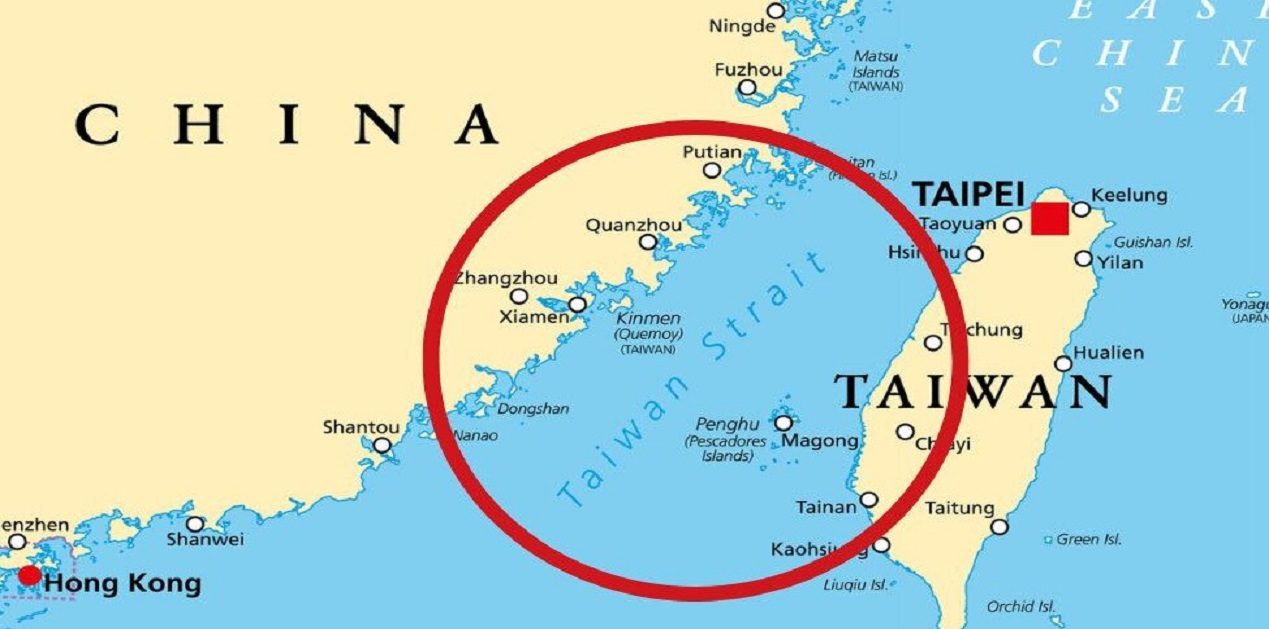
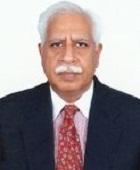
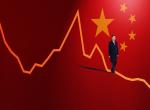

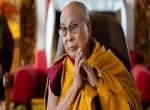
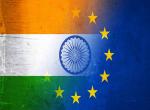


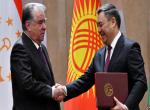

Post new comment